What is a root cyst and is surgery painful? BeDental will share through the article below, let’s find out!
Dental cysts are not a rare oral disease but are difficult to detect and cause dangerous complications. Root cyst surgery is a treatment method that is popular and applied today. So is dental cyst surgery painful? Let’s find out with BeDental in the article below.
What is a root cyst?
What is a root cyst? Dental cysts are essentially epithelial cysts of the jaw that cover part or all of the tooth crown or root. Most cysts develop due to tooth decay or other causes of inflammation or infection of the tooth root or crown.
When part of a tooth decays or dies for some reason, it releases toxins that worsen the inflammation.
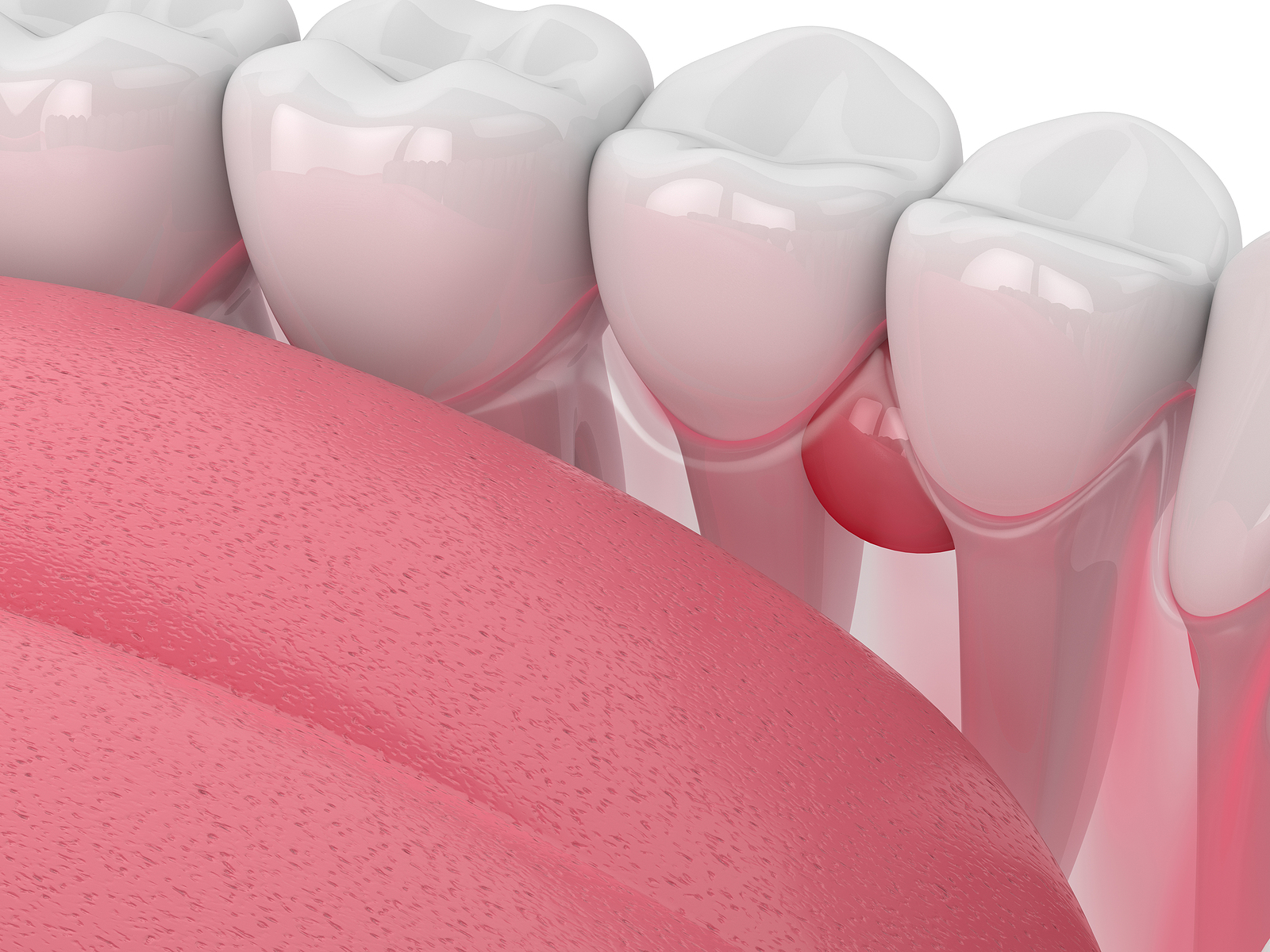
These inflammatory areas continue to stimulate the necrosis process, leading to the destruction of Malassezia epithelial cells surrounding the dental ligament, forming a dental cyst. The larger the cyst, the more it presses on the tooth bone, releasing more toxins and causing more tooth loss. This causes bones to become thinner and more susceptible to fracture.
Dental cysts often develop silently and without typical symptoms. Patients only have pain when the cyst is too large, the anterior chamber, teeth are painful and appear to be loose. Dental cysts are most commonly found in the upper front teeth.
See more: Why Does Eating Candy Cause Tooth Cavity And 5 Ways To Solve It?
Symptoms of dental cysts
Often, dental cysts are difficult to identify. However, in some cases, dental cysts can still manifest themselves with the following symptoms:
– Slightly discolored teeth, mainly visible in the root area. This can be considered an early warning sign of dental cyst disease.
In severe stages, the jawbone swells, causing facial deformation. However, many people are subjective and because this sign is not accompanied by pain, they often ignore it.
– When pressing or touching the swollen area, it feels hard (the tumor is still small) and feels soft and sunken, meaning the tumor has grown and enlarged.
Looseness of surrounding teeth.
– In children, baby teeth do not fall out even after tooth replacement.
Because the symptoms of dental cysts are unclear and can easily be confused with other oral diseases, if in doubt you should proactively go for examination and treatment at a reputable dental facility. Some subclinical symptoms may appear:
– Dental cysts can cause extensive bone destruction and lead to tooth migration.
– The bone in the tooth follicle area swells and disappears.
– Observe X-ray images to see permanent tooth loss. In some other cases, the dental cyst is directly related to the tooth below, the wisdom tooth.
Symptoms of pus-filled root cysts?
- Inflammation is characterized by swollen gums and large pockets of inflammation inside, causing the gums to bleed and ulcerate when brushing teeth due to bacteria existing on dental plaque, causing the gums to easily become infected and if left for a long time. Long term will lead to periodontitis and is difficult to treat.
- Diabetes or autoimmune diseases are also factors that lead to purulent periodontitis, causing gingivitis and pain, causing mouth ulcers, bleeding gums and tooth infection.
- Not only does it cause loss of aesthetics, the disease also makes you feel uncomfortable when eating and drinking. If not treated promptly, teeth will loosen and fall out.
- Signs of purulent periodontitis: The gums are thickened, red, swollen and painful. Bleeding when brushing teeth and infected tooth roots. Pus can form around the tooth root and cause stomatitis.
Are tooth root cysts dangerous?
Although the initial manifestations are often unclear and most people are not aware of the presence of dental cysts, this is an oral disease that is classified as dangerous because it can cause serious effects on the teeth.
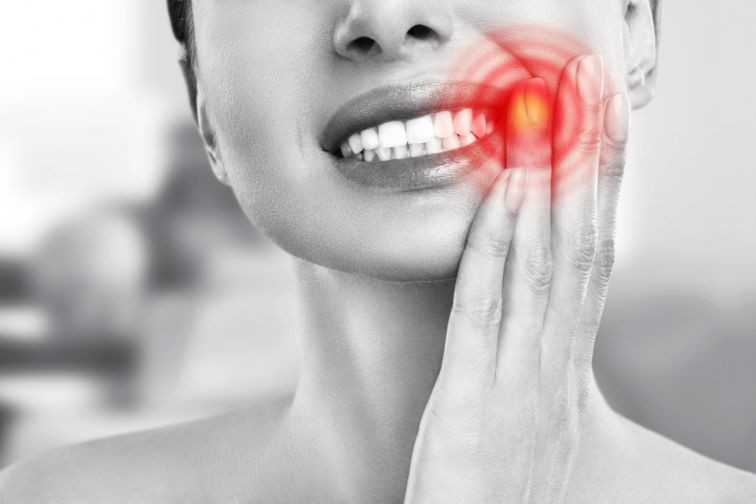
Dental cysts destroy tissue cells around the top of the tooth. Gradually, when the tip is lost, inflammatory factors develop into an inflammation deep inside the tooth pulp, silently destroying the tooth root from the inside.
Root cysts can cause local bone loss and lead to bone loss in adjacent teeth. If left untreated, it can lead to mass tooth loss. Dental cysts can hinder the jawbone’s inherent function. When jaw bone is lost, chewing function is affected and the face is deformed.
Harmful effects caused by tooth root cysts
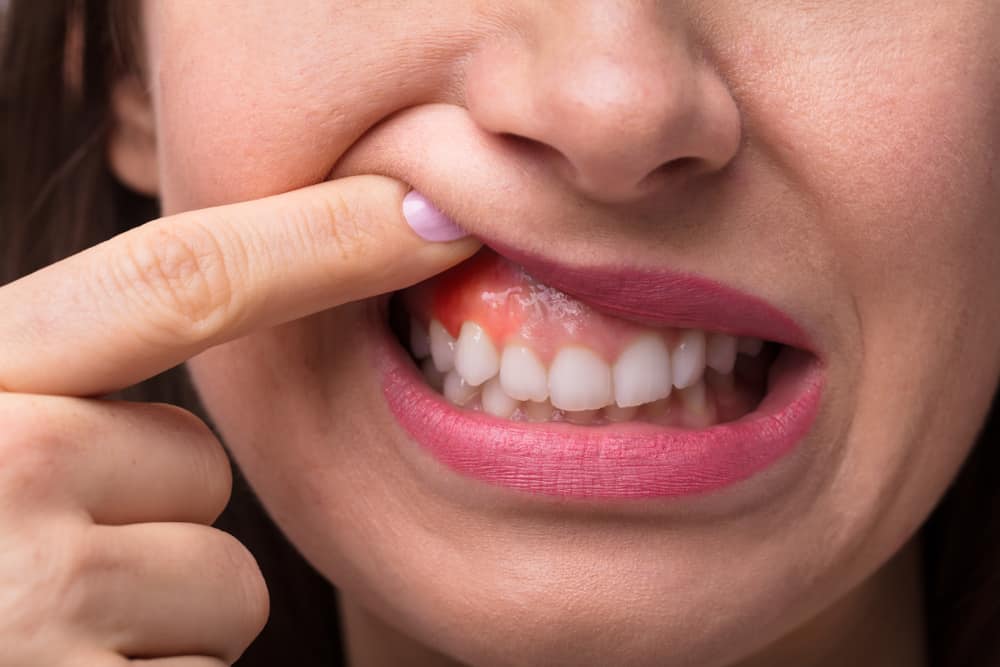
- Toothache: Root cysts can cause toothache when the nerves inside the tooth are affected by irritants from foods and cold or warm temperatures. Pain can range from moderate to severe and long lasting.
- Tooth sensitivity: As the root cyst develops and exposes the sensitive part of the tooth as well as the root and gum tissue, the tooth can become sensitive to heat or pressure and sweet, sour or sweet foods. salty.
- Infection and inflammation: Root cysts can create an opportunity for bacteria to penetrate deep inside the tooth and cause infection. Bacteria can spread to the tissues and bones around the teeth, causing gingivitis or tooth root bone infection.
- Tooth loss: If not treated early, root cysts can damage the gum tissue and bone around the teeth, causing tooth loss.
- Effects on aesthetics and function: Root cysts can cause teeth to lose their chewing function, leading to changes in shape and affecting chewing function and aesthetics.
To prevent the harmful effects of dental cysts, it is necessary to maintain a healthy oral environment, such as brushing teeth properly twice a day and using toothpaste, and to treat dental diseases as soon as they appear. If you have signs of a root cyst, see your doctor for treatment instructions.
See more: AFTER SCALING WHAT ARE THE CAUSES OF TEETH SENSITIVITY ?
How to treat root cysts
Root cysts can damage the tissue around the tooth root and if not treated early, can lead to root resorption in neighboring teeth. Furthermore, if the disease develops further, it can cause loss of molars or jaw bone loss, limiting the function of eating, chewing and causing many other harmful effects.
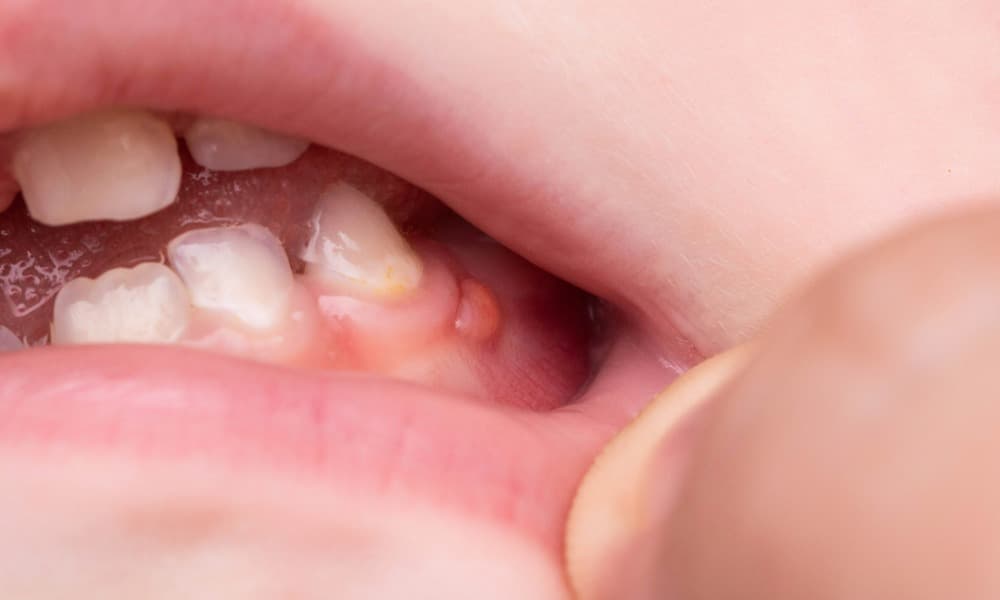
Therefore, it is necessary to treat this disease as quickly as possible because currently the most effective treatment is surgery.
Before performing surgery, the doctor will perform an oral examination combined with dental X-rays to determine the severity of the dental cysts, the number of affected teeth and the degree of jaw bone defects. After surgery, the doctor will find the most appropriate treatment method for patients with root cysts.
Tooth cysts are mild and do not affect the tooth bone
If the dental cyst is diagnosed early and is small in size, it will not affect more than 1/3 of the tooth bone. In this case, surgical removal will be simpler because the tooth bone will be preserved.
At that time, doctors will perform surgery to remove the dental cyst combined with root canal treatment to eliminate inflammation around the cystic tooth area. After the inflamed areas around the tooth have been removed and the tooth canal is sealed, the tooth will recover slowly over time.
Tooth cysts develop, causing bone loss on 1/3 of the teeth
If the root cysts have grown so large that they destroy 1/3 of the jawbone, it is considered a serious case. At this time, in addition to surgery to remove the dental cyst, the doctor will need to perform tooth removal.
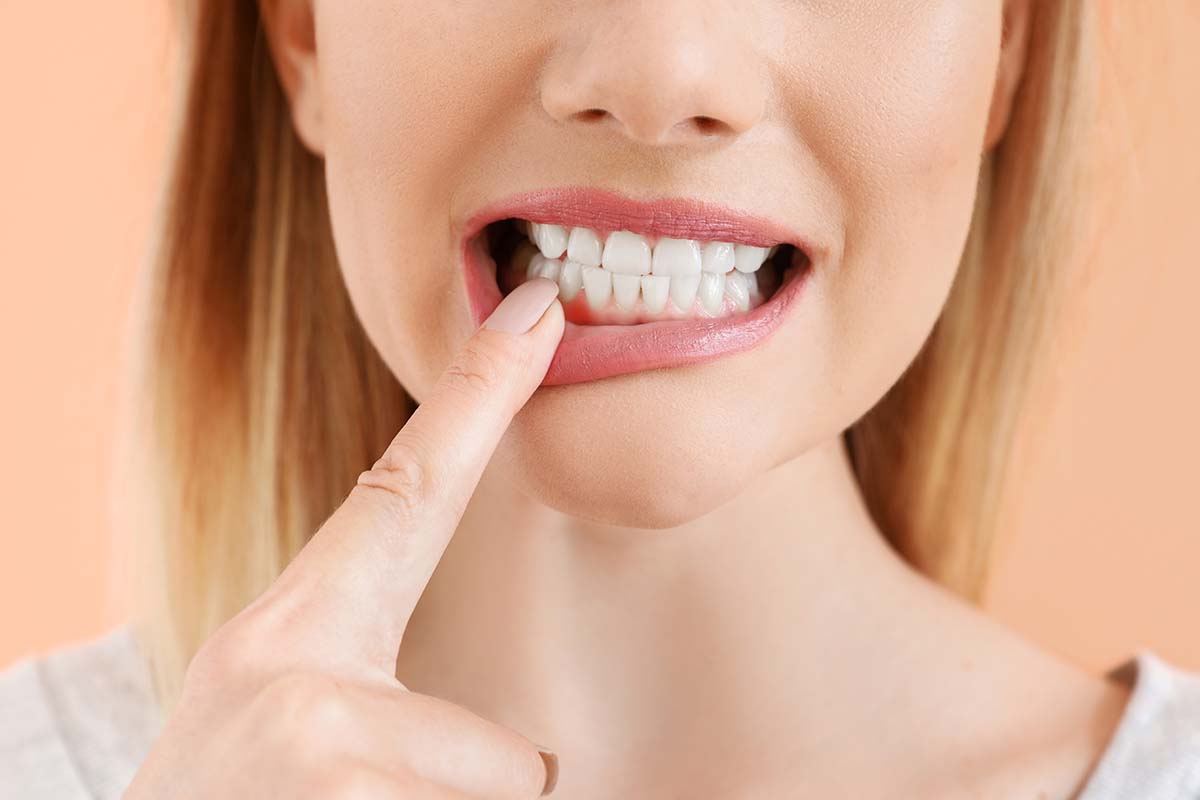
If the hole in the jawbone is small, the doctor will develop and fill it himself. In case of large holes, the doctor will have to fill them with specialized braces methods such as bone and tissue grafting with specialized dental braces materials.
After tooth removal, in order to limit jaw bone loss leading to facial deformities, the most effective way is to perform an implant. This will not affect the function of eating, chewing and beautifying the jaw and also avoiding future facial deformation.
Is dental cyst surgery painful?
Whether surgery is painful or not is very difficult to answer because it depends on the patient’s pain threshold and the extent of the dental cyst. However, during surgery, doctors use painkillers or anesthesia to make the surgery painless. Mild cases of cysts may only cause mild stinging after surgery.
In cases where tooth extraction is necessary, root canal treatment may be somewhat painful for a few days after the wound heals. To reduce pain after surgery, patients need to follow a strict care regimen, especially diet to avoid inflammation and recurrent infections, and recover quickly.
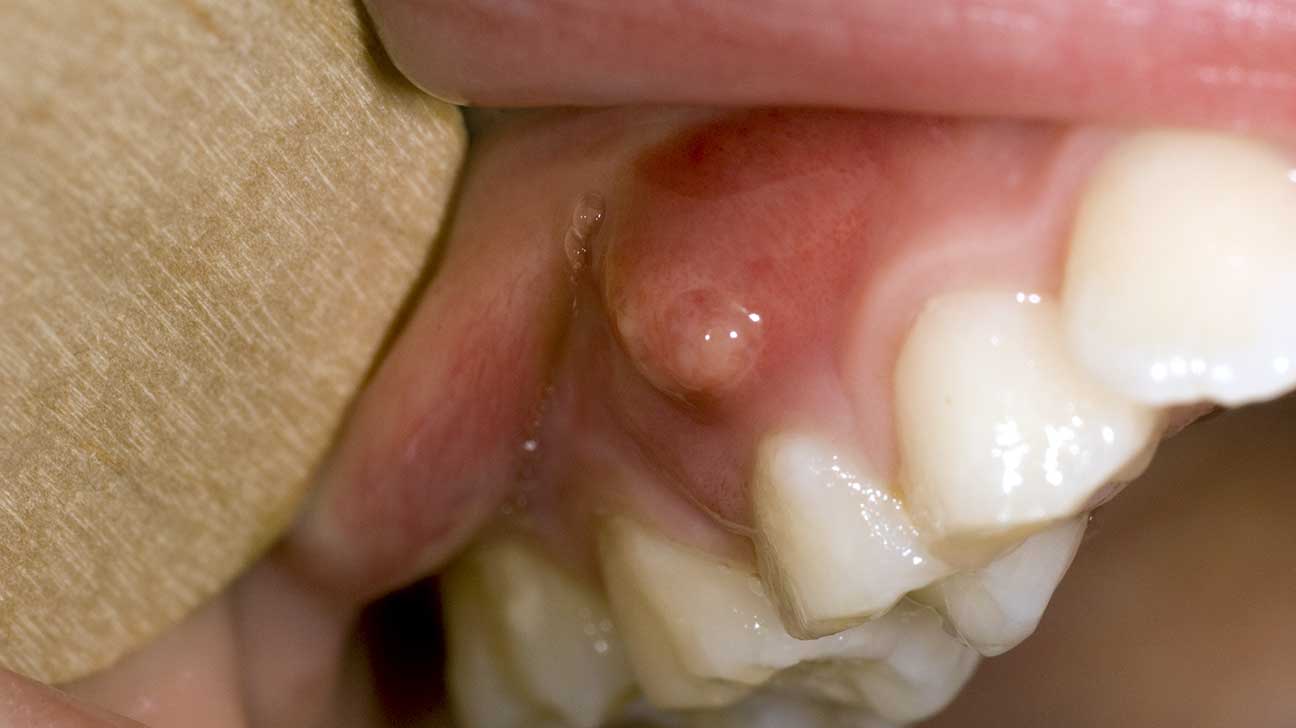
If you find that the incision is not clear after surgery, or your gums are oozing pus, red and swollen, you need to proactively see a doctor and see a doctor as soon as possible. Simply put, dental cysts are a type of oral disease that cannot be cured on their own. If not treated promptly, they will cause many serious consequences.
BeDental cosmetic dentistry was established in 2012. After a period of operation, the center has quickly become an address to serve customers with reputable dental services and is one of the leading dentists in the field. dental field.
With a team of experts, experienced doctors, advanced equipment system and modern technical team, Oral and Maxillofacial Aesthetic Dentistry has taken steady steps on the path to becoming a dental center. Aesthetics in Vietnam.
With the mission of “sowing smiles, spreading success”, BeDental believes that everyone deserves to have a confident and charming smile. That’s why we always try to remove the problems and obstacles that obscure your beautiful smile.
See more: Which country is 3M Lava Porcelain Teeth from? How Many Types Are There? Detailed Review
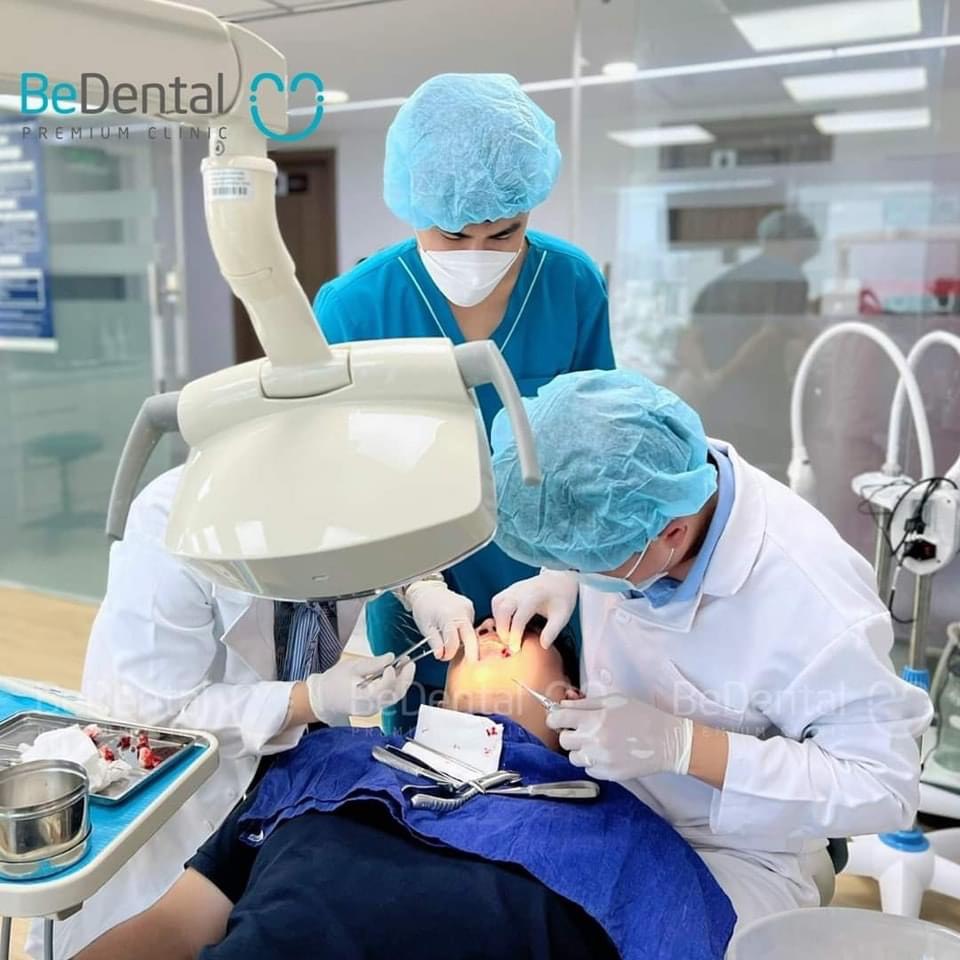
Most importantly, we believe that healthy teeth are the foundation of a happy life and a smile is the key to success.
BeDental always strives to become a leading unit in the cosmetic dentistry industry, especially porcelain dental restorations in Vietnam with a strategy focusing on developing high technology, updating trends and techniques. modern art.
With a team of leading cosmetic doctors in the dental field in Vietnam, BeDental always brings customers dedication, dedication and devotion to customers like their own family. Bedental is a reputable and professional cosmetic dentistry system with many facilities in the city center to help customers move easily.
Next is a modern equipment system imported from abroad and has been safety tested by the Ministry of Health. Five-star standard facilities allow customers to have a relaxing and safe space when experiencing the service.
How long does it take to recover after root canal surgery?
Recovery time after root canal surgery can range from a few days to weeks, depending on the extent of the surgery and the individual’s ability to recover.
During the first few days after surgery, you may feel pain and mild swelling in the area around the root of the cyst. You may need to take pain relievers and reduce swelling. You should also avoid eating spicy foods and should eat light, soft and cold foods to minimize pain and recover better.
Depending on your situation, your doctor will schedule a follow-up appointment in about 1-2 weeks to make sure your recovery is progressing properly. After that, the time it takes to completely cure the disease will depend on the results of surgery and your financial situation.
Therefore, if you have any problems or feel unusual, contact your doctor for early diagnosis and treatment.
How to prevent dental cysts

To prevent root cysts, you should apply the following methods:
- Brush your teeth properly: Brush your teeth at least twice a day using an interdental toothbrush and fluoride toothpaste. Brush your teeth for at least 2-3 minutes every day and make sure to clean the bottom, back and horizontal surfaces of your teeth.
- Use dental floss: Using dental floss every day helps clean the gaps between teeth and gum tissue. This helps eliminate stains and prevent root cysts.
- Use mouthwash containing fluoride: Using mouthwash containing fluoride after brushing your teeth will help strengthen tooth enamel and prevent the formation of root cysts.
- Limit sugar use: Avoid sugary sweets, specifically sugar candies and soft drinks. Oral bacteria will react with sugar and form acids that damage tooth enamel.
- Adjust your diet: Eating a balanced and nutritious diet helps increase resistance and protect your gums.
- Regular dental check-ups: This includes cavities treatment, gum treatment and decalcification if necessary.
- Avoid cigarette smoke and alcohol: Cigarette smoke and alcohol will harm tooth enamel and gums, increasing the risk of dental cysts.
- Limit stress: Stress will affect dental health, so limit stress and apply stress relief methods by practicing yoga or relaxing meditation.
- Attend regular dental check-ups: This helps promptly diagnose dental diseases and treat them early to prevent the appearance of root cysts.
See more: What should I eat after wisdom tooth extraction? What to abstain from?
Be Dental Service Price List
| List | Unit | Price | |
|---|---|---|---|
| 1. Tooth Extraction (More detail...) | |||
| Deciduous tooth Extraction without anesthetic | 1 unit | ~ Free |
|
| Deciduous tooth Extraction with Anesthetic | 1 unit | 150.000 ~ 6$ |
|
| Front Tooth Extraction | 1 unit | 1.000.000 ~ 39$ |
|
| Premolar tooth Extraction | 1 unit | 1.500.000 ~ 59$ |
|
| Molar tooth Extraction | 1 unit | 2.000.000 ~ 79$ |
|
| Upper Wisdom Tooth Extraction | 1 unit | 1.500.000 ~ 59$ |
|
| Lower Wisdom Tooth Extraction Straight-grown | 1 unit | 2.000.000 ~ 79$ |
|
| Lower Wisdom Tooth Extraction non Straight-grown | 1 unit | 3.000.000 ~ 118$ |
|
| Lower Wisdom Tooth Extraction - Dificult | 1 unit | 4.000.000 ~ 157$ |
|
| Upper Wisdom Tooth Extraction with Piezotime | 1 unit | 2.000.000 ~ 79$ |
|
| Lower Wisdom Tooth Extraction Straight-grown with Piezotome | 1 unit | 3.500.000 ~ 138$ |
|
| Lower Wisdom Tooth Extraction Straight-grown with Piezotome - Dificult Case | 1 unit | 5.000.000 ~ 196$ |
|
| Lower Wisdom Tooth Extraction non Straight-grown with Piezotome | 1 unit | 4.500.000 ~ 177$ |
|
| Tooth abscess Treatment | 1 unit | 800.000 ~ 31$ |
|
| Tooth follicles treatment | 1 unit | 2.000.000 ~ 79$ |
|
| 2. Gum contouring Surgery (More detail...) | |||
| Gum contouring Surgery with Knife surgery | 1 unit | 500.000 ~ 20$ |
|
| Gum contouring Surgery with laser machine | 1 unit | 1.000.000 ~ 39$ |
|
| Gum contouring Surgery bone impacting | 1 jaw | 15.000.000 ~ 589$ | |
| 3. Other Surgery |
No block ID is set
“}” data-sheets-userformat=”{“2″:513,”3”:{“1″:0},”12″:0}”>
BEDENTAL - TOP STANDARD DENTISTRY SYSTEM
In HANOI
Address 1: 7B Thi Sach St, Ngo Thi Nham, Hai Ba Trung Dist, Ha Noi. - 0934.61.9090
Address 2: No 129 Hoang Ngan, Yen Hoa, Cau Giay Dist, Ha Noi. - 0934.61.9090
In HO CHI MINH
Address 1: 53 -55 -57 Pho Duc Chinh St, Nguyen Thai Binh, Dist. 1, Ho Chi Minh. - 0766.00.8080
Working: 9am - 8pm everyday
Website: https://bedental.vn/en/




